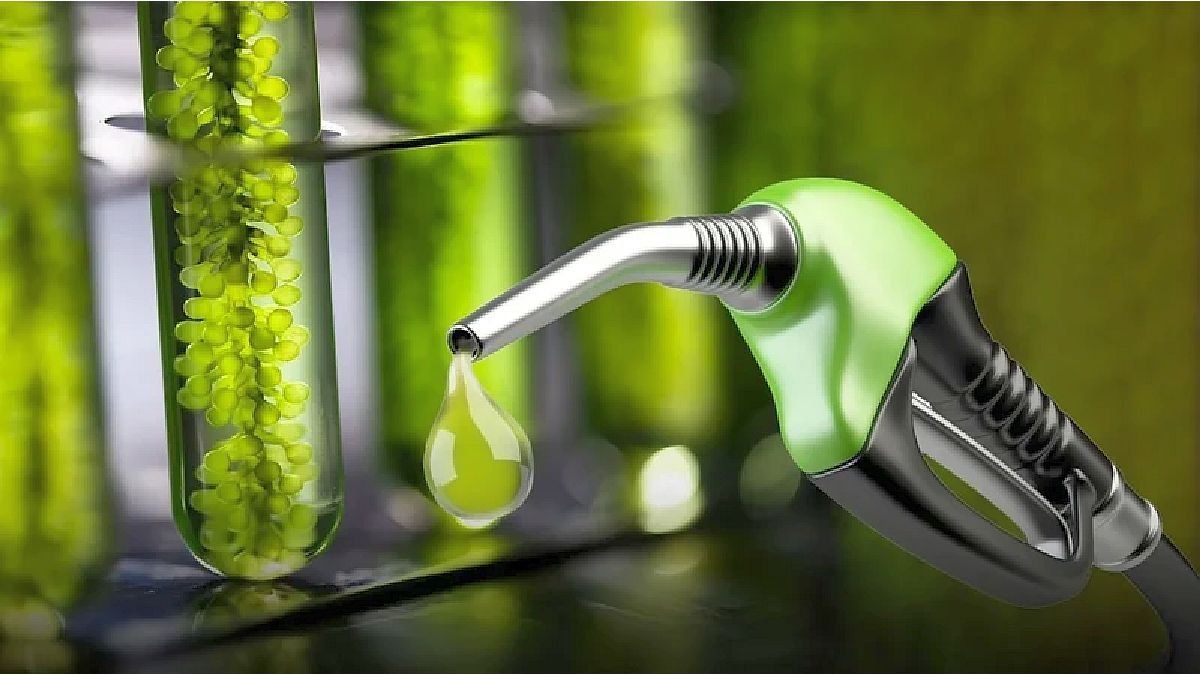A group of national libertarian deputies presented a bill to the National Congress to establish a new regulatory framework for the biofuels in Argentina. The initiative seeks to update and replace current regulations, with the aim of promoting sustainable development, energy efficiency and competitiveness in the sector.
According to the text written by legislators of Freedom Advances, “The new law promotes the incorporation of advanced technologies, the reduction of emissions and the consolidation of the country as a key actor in the global energy transition.”
Although the project was presented by the representative Lorena Villaverdealso bears the signature of Facundo Correa Llano, César Treffinger, Alberto Arancibia Rodríguez, Julio Moreno, Florencia Klipauka Lewtak, Carlos Zapata, Alida Ferreyra, Gerardo Huesen, Nadia Márquez, Carlos D’Alessandro, Gabriel Bornoroni, José Peluc, Álvaro Martínez and Beltrán Benedit.
What are the main objectives of the libertarian Biofuels Law
Among the main objectives, Article 2 details the need to guarantee the quality and availability of biofuels, protect consumer rights and ensure the safety of production and storage facilities. Furthermore, the incentive for private investment is highlighted, considering that this sector can be “an engine of economic development in the producing regions.”
The enforcement authority will be Secretary of Energy today in charge of Maria del Carmen Tettamantidependent on the Ministry of Economy, with broad powers to supervise, regulate prices and promote exports. For example, article 23 establishes severe sanctions for non-compliance, which include fines of up to the equivalent of 4.5 million liters of super gasoline for very serious violations.
The project introduces mandatory minimum percentages of mixing biofuels with fossil fuelsstarting with 7.5% biodiesel in diesel and 12% bioethanol in gasoline, figures that will gradually increase to 10% and 15% respectively by 2027, according to articles 10 and 11. The authority may adjust these percentages for reasons technical or geographical, guaranteeing the supply of the internal market.
In terms of innovation, Article 5 expands the definition of biofuelsincluding advanced options such as synthetic fuels derived from CO2 and water, as long as they meet quality standards. This provision seeks to align local legislation with international standards and promote new technologies in the country.
Self-consumption and the circular economy are also pillars of the project. According to article 7, Agricultural and agroindustrial companies will be able to use biofuels produced in their facilities, optimizing resources and reducing costs. In addition, carbon capture and the efficient use of organic waste are encouraged, minimizing the environmental impact.
The regulations prioritize sustainable mobility, encouraging the use of biofuels in transportation. Advanced fuels are mentioned such as biojet, key to sustainable aviation, and biomethane for land transportation. This responds to the commitment to reduce the carbon footprint in strategic sectors of the national economy.
At a commercial level, the export of biofuels will be free, seeking to enhance the balance of payments. “International trade will allow Argentina to position itself as a competitive exporter in the global market, while ensuring the sustainability of resources”states article 18.
In summary, this bill represents a “bet” on energy diversification, sustainability and growth of the energy sector. biofuels. With a focus on technological innovation and economic development, the authors hope it will “drive the transition towards a cleaner energy matrix, aligning the country with global demands for emissions reductions.”
Congress has already received another bill: that of the Bioenergetics League
The other legislative initiative that was also presented last August to Congress is from the national deputies of Córdoba, Santa Fe, Entre Río, Salta, Jujuy and Tucumánrepresenting the so-called “Bioenergetic League”.
Strictly speaking, the League bill establishes that “for a period of 18 years counted from the entry into force of the law, the biofuels “that are compulsorily mixed with fossil fuels must be produced in facilities located in the Argentine Republic, using national raw materials.”
And regarding the percentage for mandatory mixing or cutting, 10% is set for biodiesel on the date of entry into force of the law; 11% as of January 1, 2025; 12% by 2026 and 15% by 2028.
Bioenergetics League.jpg
Photo: Government of Jujuy
For him bioethanolthe League’s project foresees 12%, which in a period of no more than two years will have to be raised to 15%, while in three years a free and voluntary market will be opened for mixtures that exceed that percentage.
And the initiative also provides that “only when the mixtures exceed 15% for biodiesel and 12% for bioethanol, hydrocarbon companies will be authorized to participate in the supply of biofuels, only in the volume exceeding those percentages. In no case will participation may be greater than 50% of the total surplus volume.”
Summary of the new Biofuels Law of La Libertad Avanza article by article
-
Article 1:
- Establishes the regulatory framework for biofuels, covering production, storage, marketing, mixing and self-consumption.
-
Article 2:
- Defines the objectives of the national biofuels policy:
- Protection of consumer rights.
- Promotion of competitive and efficient markets.
- Compliance with quality standards.
- Security in facilities.
- Investment and employment incentive.
- Technological development and sustainable energy transition.
- Defines the objectives of the national biofuels policy:
-
Article 3:
- The Ministry of Energy is designated as the enforcement authority.
-
Article 4:
- Details the functions of the enforcement authority:
- Regulate, supervise and audit the activities of the sector.
- Determine mixing percentages and monitor prices.
- Guarantee market competitiveness and denounce abuses of dominant position.
- Details the functions of the enforcement authority:
-
Article 5:
- Defines what is considered biofuel: products derived from organic raw materials or waste, including synthetic fuels obtained from CO2 and water.
-
Article 6:
- Establishes policies to promote the use of biofuels in all economic sectors, prioritizing sustainable mobility and promoting carbon capture and circular economy technologies.
-
Article 7:
- It requires the registration and authorization of companies to operate in the internal and external biofuels market.
-
Article 8:
- It allows free participation in the production, storage and marketing markets, except in relation to mandatory mixtures.
-
Article 9:
- Requires that biofuels and their mixtures comply with current quality regulations.
-
Articles 10 and 11:
- They establish mandatory minimum mixing percentages:
- Biodiesel in diesel: 7.5%, increasing to 10% in 2027.
- Bioethanol in gasoline: 12%, increasing to 15% in 2027.
- They establish mandatory minimum mixing percentages:
-
Article 12:
- Details the biodiesel allocation and supply system to comply with mandatory blends.
-
Article 13:
- Regulates the allocation and supply of bioethanol for mixtures with gasoline, guaranteeing equitable participation between corn and sugar cane producers.
-
Articles 14 and 15:
- They allow the addition of biofuels above the mandatory percentages, within the established technical limits.
-
Article 16:
- It obliges companies to guarantee the supply of biofuels for mandatory blends.
-
Article 17:
- It allows free negotiation of prices between producers and mixers, with supervision by the authority to avoid distortions.
-
Article 18:
- It declares international trade in biofuels free and establishes a specific regime for exports and imports.
-
Articles 19 to 21:
- They regulate inspection, inspection and cooperation with other authorities, ensuring compliance with the law.
-
Articles 22 and 23:
- They specify sanctions for non-compliance, with fines scaled according to the severity of the infraction.
-
Article 24:
- Details the administrative and jurisdictional procedure in case of disputes.
-
Article 25:
- Exempts biofuels from the Liquid Fuel Tax (ICL) and the Carbon Dioxide Tax (ICO2).
-
Article 26:
- Repeals the previous regulations (Law 27,640) and regulates the transition to the new legal framework.
-
Article 27:
- Establishes a gradual transition period towards full implementation of the law.
-
Article 28:
- It defines that the law will come into force 15 days after its publication in the Official Gazette.
-
Article 29:
- Provides for the communication of the norm to the national Executive Branch.
This is the biofuels bill of La Libertad Avanza
La Libertad Avanza Biofuels Bill
Source: Ambito
I am an author and journalist who has worked in the entertainment industry for over a decade. I currently work as a news editor at a major news website, and my focus is on covering the latest trends in entertainment. I also write occasional pieces for other outlets, and have authored two books about the entertainment industry.




